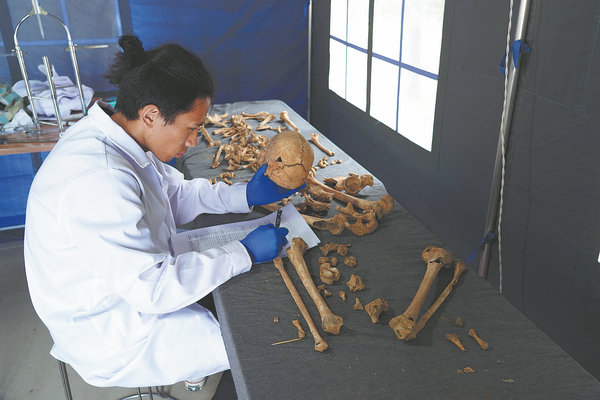

Advances in DNA technology increasingly enable the writing and rewriting of the past, Fang Aiqing and Xu Xiaomin report.
Wen Shaoqing's work is about breaking boundaries and exploring where his imagination leads him. Journalists have been chasing the molecular biologist-turned-archaeologist since September when his team at Fudan University's Institute for Archaeological Science uncovered the touching stories hidden in the remains of unidentified martyrs of the War of Resistance Against Japanese Aggression (1931-45) and the subsequent War of Liberation (1946-49).
The team's efforts involving forensic DNA techniques continue to this day in the hope that relatives of these obscure heroes will finally be able to find long-lost family members.
Wen, who is an associate professor at the institute, has also been involved in research such as analyzing the dietary habits of an ancient emperor and his queen and the causes of their deaths, as well as the interaction and integration of ancient ethnic groups in what is now northern China.
As his team's more interesting findings become known to the public, especially those involving the analysis of ancient DNA, the potential of archaeological science to solve long-standing historical mysteries becomes more widely recognized in China.